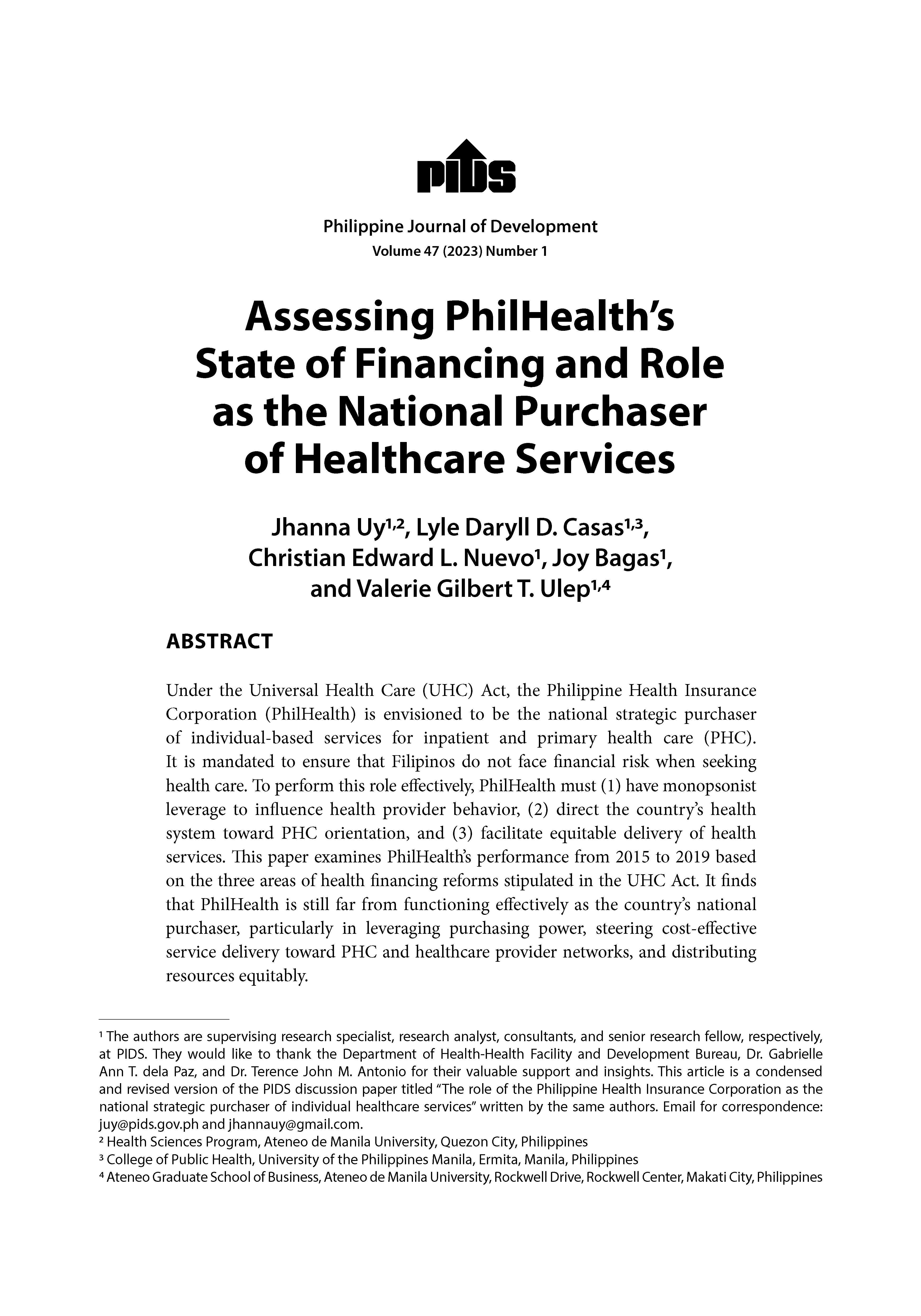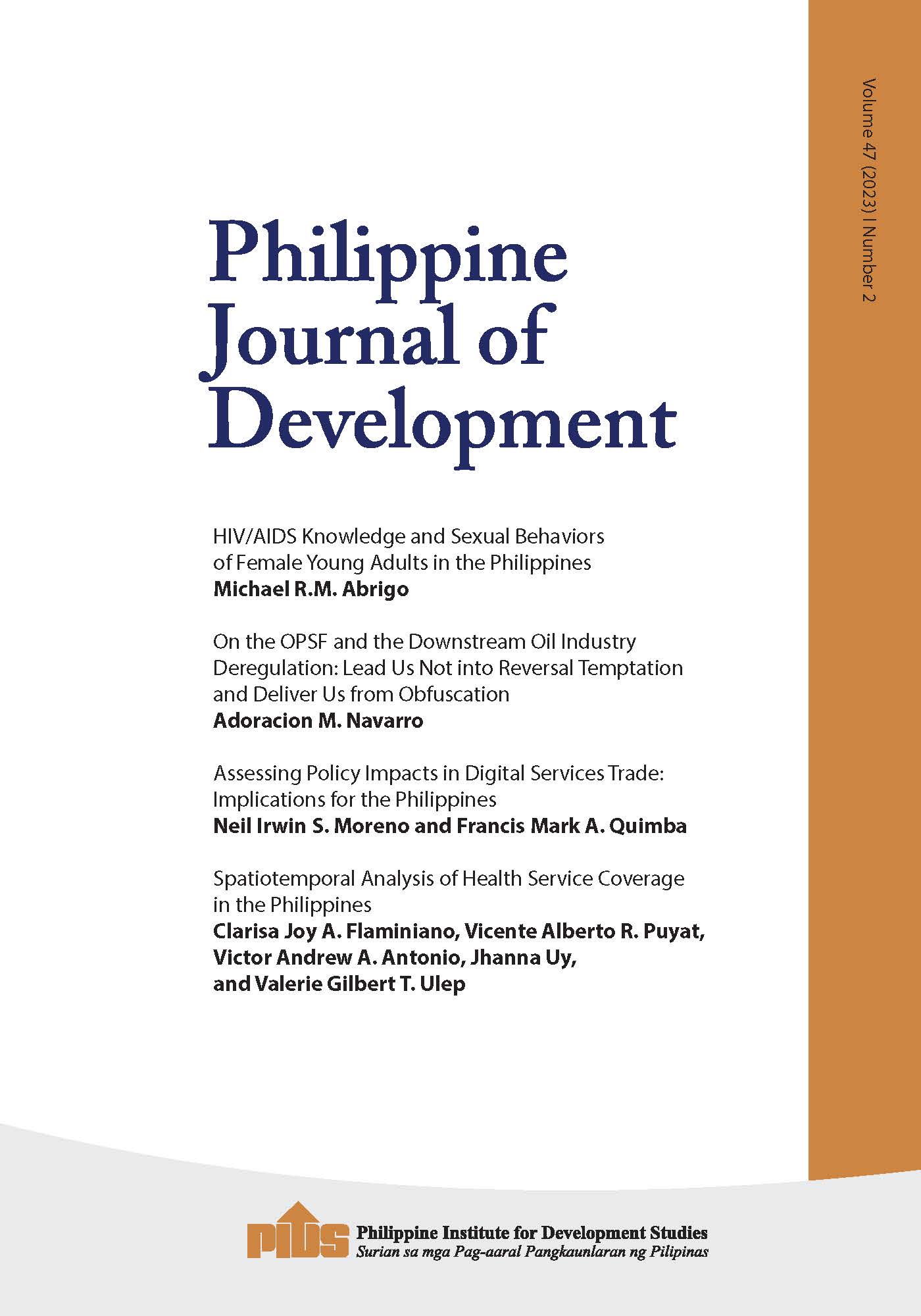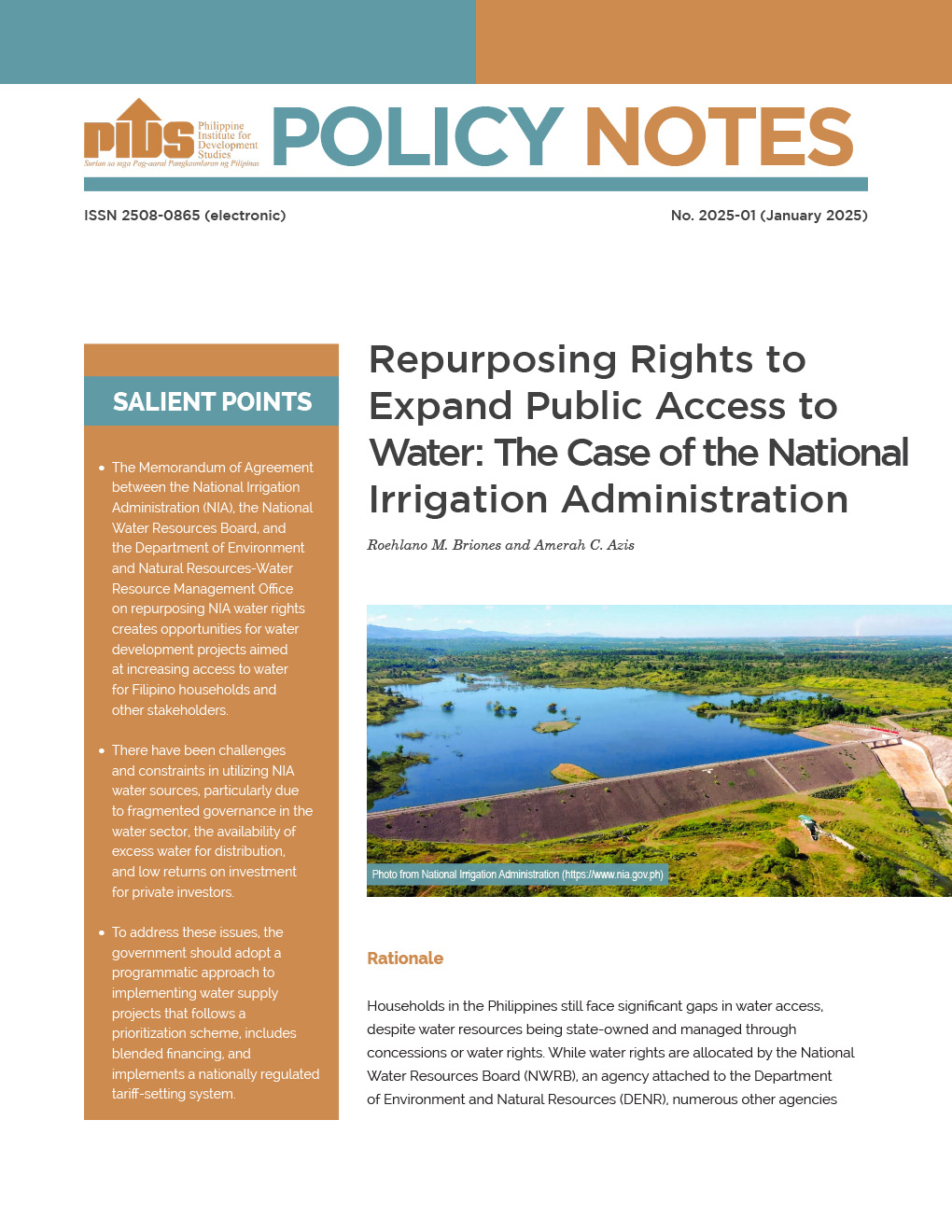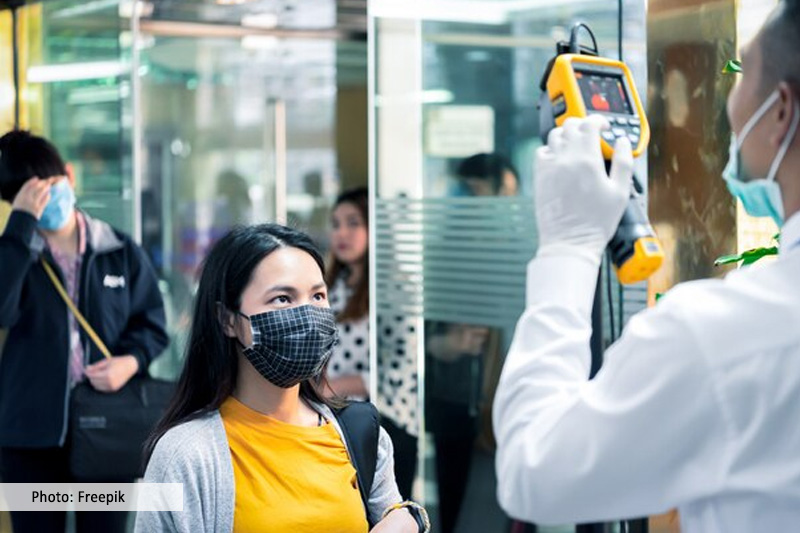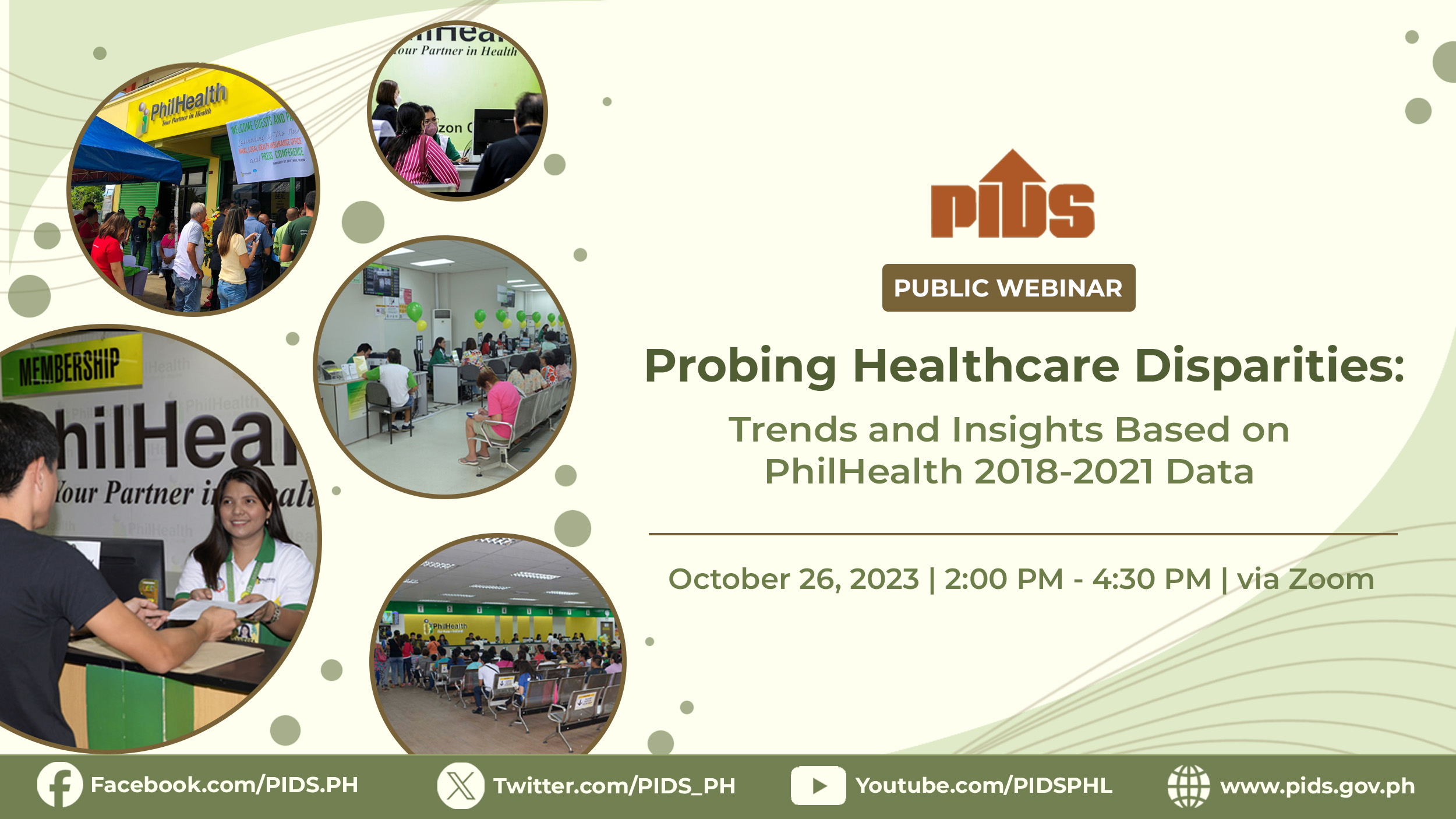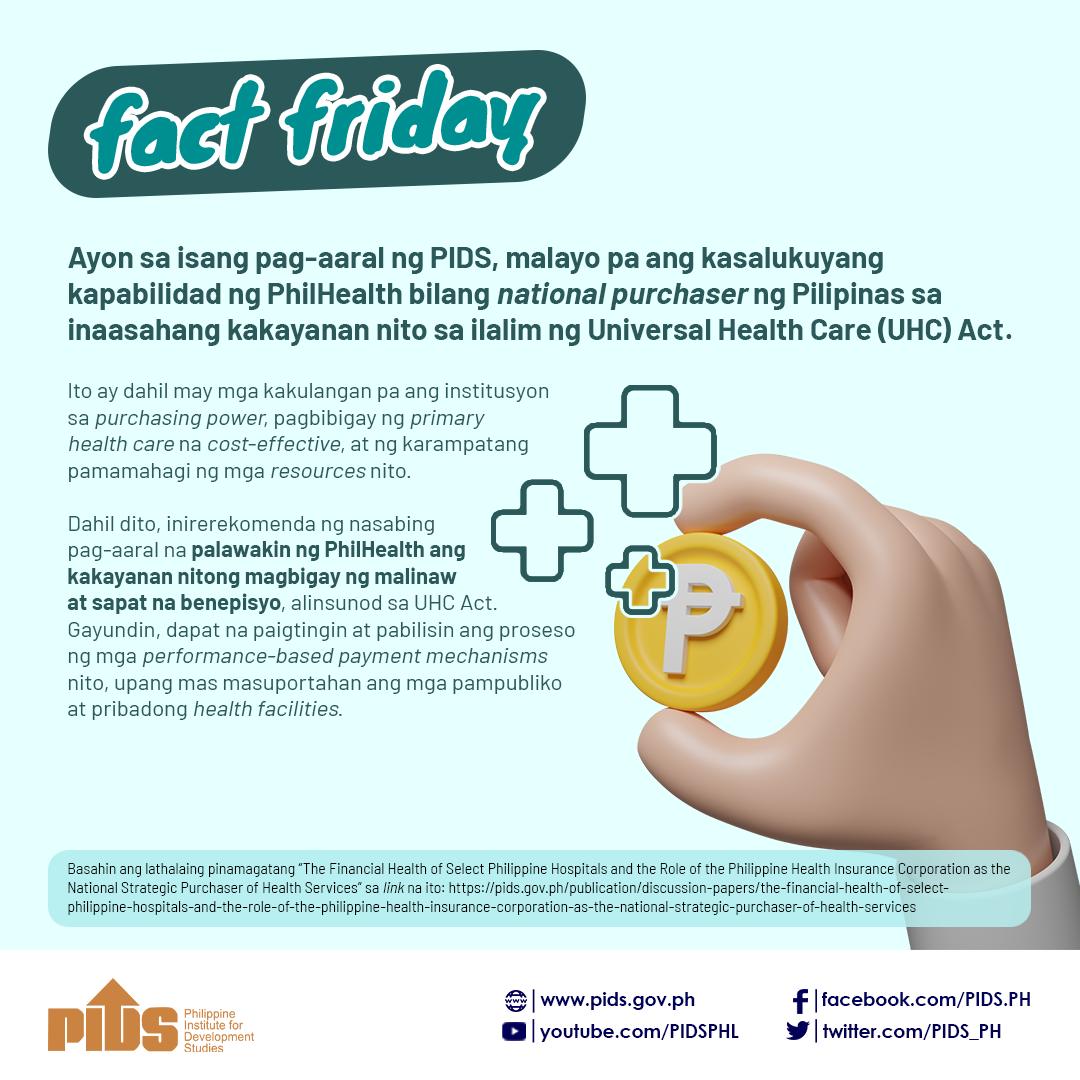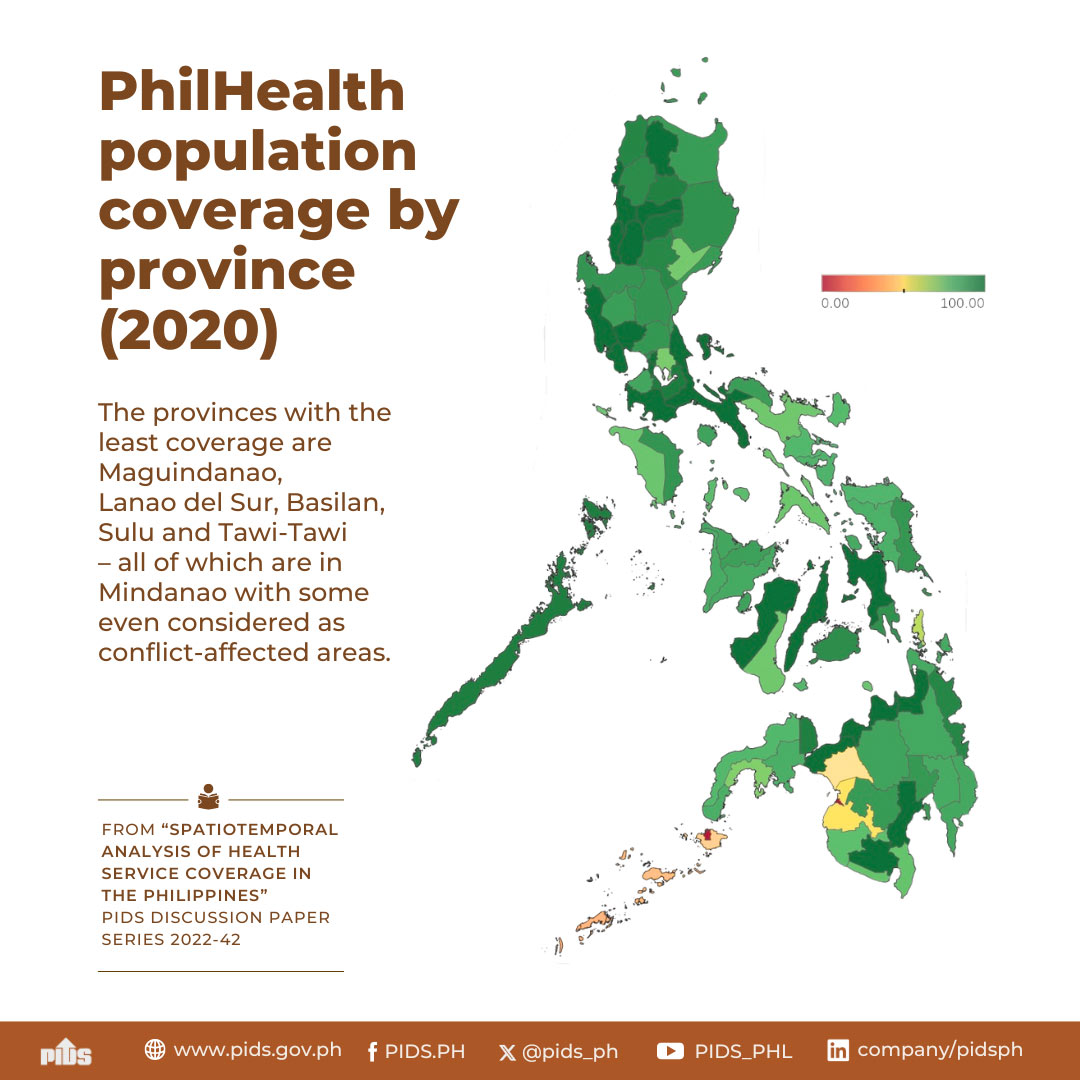FILIPINOS will spend less for health if the government expands the Philippine Health Insurance Corp. (PhilHealth), according to a study released by the Philippine Institute for Development Studies (Pids).
In a policy note titled Analysis of Out-of-Pocket Expenditures in the Philippines, former Pids researchers Valerie Gilbert Ulep and Nina Ashley de la Cruz said Filipinos’ health payments continue to go up despite efforts to lower prices of medicines and hospitalization costs.
The researchers recommended the expansion of the PhilHealth to include outpatient medicines which can reduce the costs of patients who do not need confinement for their health concerns.
“The expansion should not be limited to the sponsored program, as selective benefit coverage losses the power of PhilHealth as the main purchaser. However, it should ensure that benefits are cost effective and necessary,” the study read.
On the extreme, out of pocket health expenses could lead households to poverty.
The researchers said around 18 percent of the population are living in poverty, defined as total expenditure being lower than the subsistence spending.
If out of pocket health payments are netted out, this percentage rises to 19.4 percent.
“Thus, 1 percent of the population become poor once health expenditure occurs. The poverty gap also increases from P282 to P300,” the study read.
Data also showed the burden of health payments, which is a share of out of pocket expenditures on health on household capacity to pay, has increased to 4.8 percent in 2012 from 2.8 percent in 2000.
There was also an increasing trend in terms of “catastrophic payments,” which is based on the share of out-of-pocket health expense on income. The threshold set by the World Health Organization, when “capacity to pay” is used, is 40 percent.
Based on the data in the country, the proportion of households that incur catastrophic payments rose to 1.5 percent in 2012 from 0.49 percent in 2000.
“This translates to roughly 1.5 million people spending more than 40 percent of their earnings on health care,” the researchers said.
The researchers also recommended that the government should strengthen the provider payment mechanisms (PPM) of PhilHealth.
PPM is a “powerful tool” in controlling and stimulating the behaviors of consumers (patients) and health-care providers.
The study added that the government should also continue to pursue the expansion of PhilHealth to include nonpoor informal workers, which is now the “battleground sector” in achieving full coverage.//
In a policy note titled Analysis of Out-of-Pocket Expenditures in the Philippines, former Pids researchers Valerie Gilbert Ulep and Nina Ashley de la Cruz said Filipinos’ health payments continue to go up despite efforts to lower prices of medicines and hospitalization costs.
The researchers recommended the expansion of the PhilHealth to include outpatient medicines which can reduce the costs of patients who do not need confinement for their health concerns.
“The expansion should not be limited to the sponsored program, as selective benefit coverage losses the power of PhilHealth as the main purchaser. However, it should ensure that benefits are cost effective and necessary,” the study read.
On the extreme, out of pocket health expenses could lead households to poverty.
The researchers said around 18 percent of the population are living in poverty, defined as total expenditure being lower than the subsistence spending.
If out of pocket health payments are netted out, this percentage rises to 19.4 percent.
“Thus, 1 percent of the population become poor once health expenditure occurs. The poverty gap also increases from P282 to P300,” the study read.
Data also showed the burden of health payments, which is a share of out of pocket expenditures on health on household capacity to pay, has increased to 4.8 percent in 2012 from 2.8 percent in 2000.
There was also an increasing trend in terms of “catastrophic payments,” which is based on the share of out-of-pocket health expense on income. The threshold set by the World Health Organization, when “capacity to pay” is used, is 40 percent.
Based on the data in the country, the proportion of households that incur catastrophic payments rose to 1.5 percent in 2012 from 0.49 percent in 2000.
“This translates to roughly 1.5 million people spending more than 40 percent of their earnings on health care,” the researchers said.
The researchers also recommended that the government should strengthen the provider payment mechanisms (PPM) of PhilHealth.
PPM is a “powerful tool” in controlling and stimulating the behaviors of consumers (patients) and health-care providers.
The study added that the government should also continue to pursue the expansion of PhilHealth to include nonpoor informal workers, which is now the “battleground sector” in achieving full coverage.//

